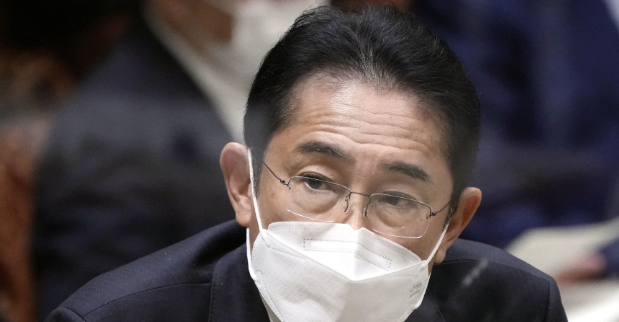
Prime Minister Fumio Kishida’s Cabinet approved a new bill Thursday that will ban organizations from using fear to solicit donations, including the use of “spiritual inspiration” as way to push followers into giving funds.
Though the move is aimed at providing relief to followers of the controversial Unification Church and their family members, some of whom have been left in financial ruin due to donating large sums of money, the legislation covers nonreligious groups as well.
“The purpose of the legislation is to provide relief and prevent a recurrence of unjust soliciting of donations,” Chief Cabinet Secretary Hirokazu Matsuno said in a news conference Thursday. “We’ve done our best to make it as effective as possible under the current legal framework.”
Opposition lawmakers and lawyers supporting victims of the religious group, however, claim that a large portion of the victims would not be covered by the legislation because of its strict criteria, and have said its scope needs to be expanded.
“It wouldn’t lead to quickly providing relief, or prevent issues from recurring,” said Japanese Communist Party lawmaker Tomoko Tamura during a parliamentary session on Thursday.
The bill bans organizations from taking advantage of followers’ fears to compel them to make a donation. This would, for instance, ban a religious group from telling a follower that evil spirits are preventing a disease from being cured, and that a donation would make it go away.
The bill will also prohibit groups from soliciting donations that would require the donor to take out a loan or mortgage their house.
If a group does not comply with the new legislation, members who have solicited donations through means that violate the new rules could face up to a year in prison or a ¥1 million ($7,300) fine.
If donations are made in ways that are banned under the new legislation, donors will be able to cancel their donation and get a refund. Alternatively, spouses and children of the donors would be able to ask for a refund that is equivalent to the amount they receive in spousal or child support, or the amount they spend on their daily necessities.
A point of contention has been whether to ban donations based only on the actions of the organization or whether to factor in the mental state of the victim — whether they are subject to what is termed “mind control” in Japanese — with opposition lawmakers arguing that their psychological state should be considered. But this was not included in the bill out of concern that it would be hard for a third party to judge an individual’s state of mind and whether or not they were manipulated.
Instead, it includes clauses covering things that groups need to be mindful of, though they do not not include prison terms or fines:
Refraining from placing the donor in a state that would compromise their ability to make free and sensible decisions.
Refraining from placing the donor and their family in a financially difficult situation.
Clarifying the group’s name when soliciting donations and not misleading donors on how their contribution will be used.
The ruling coalition hopes to pass the bill, as well as another set of revised legislation that will restrict “spiritual sales” tactics, in the current parliamentary session, which ends Dec. 10. But lawmakers will be racing against the clock to pass the bill within that time frame.
The new bill was drafted after the Unification Church’s aggressive donation-seeking practices were put in the spotlight following the assassination of former Prime Minister Shinzo Abe in July. Tetsuya Yamagami, who was arrested on suspicion of shooting Abe, has reportedly told police that he held a grudge against the politician over his ties to the church. Yamagami’s mother was a church follower who gave away ¥100 million to the group, leaving her family bankrupt, according to news reports.
A survey released by the Japan Federation of Bar Associations on Tuesday showed that there are still many people who are facing hardship as a result of activities of the Unification Church.
The survey found that the three bar associations in Tokyo handled 309 legal consultations in September and October for past and ongoing issues involving the religious group, which is now formally called the Family Federation for World Peace and Unification.
There were 253 cases involving financial damages. About 40% saw damages of ¥10 million or more, while 17 cases involved damages of over ¥100 million, according to the survey.
https://www.japantimes.co.jp/news/2022/12/01/national/cabinet-approves-donations-fear-bill/





